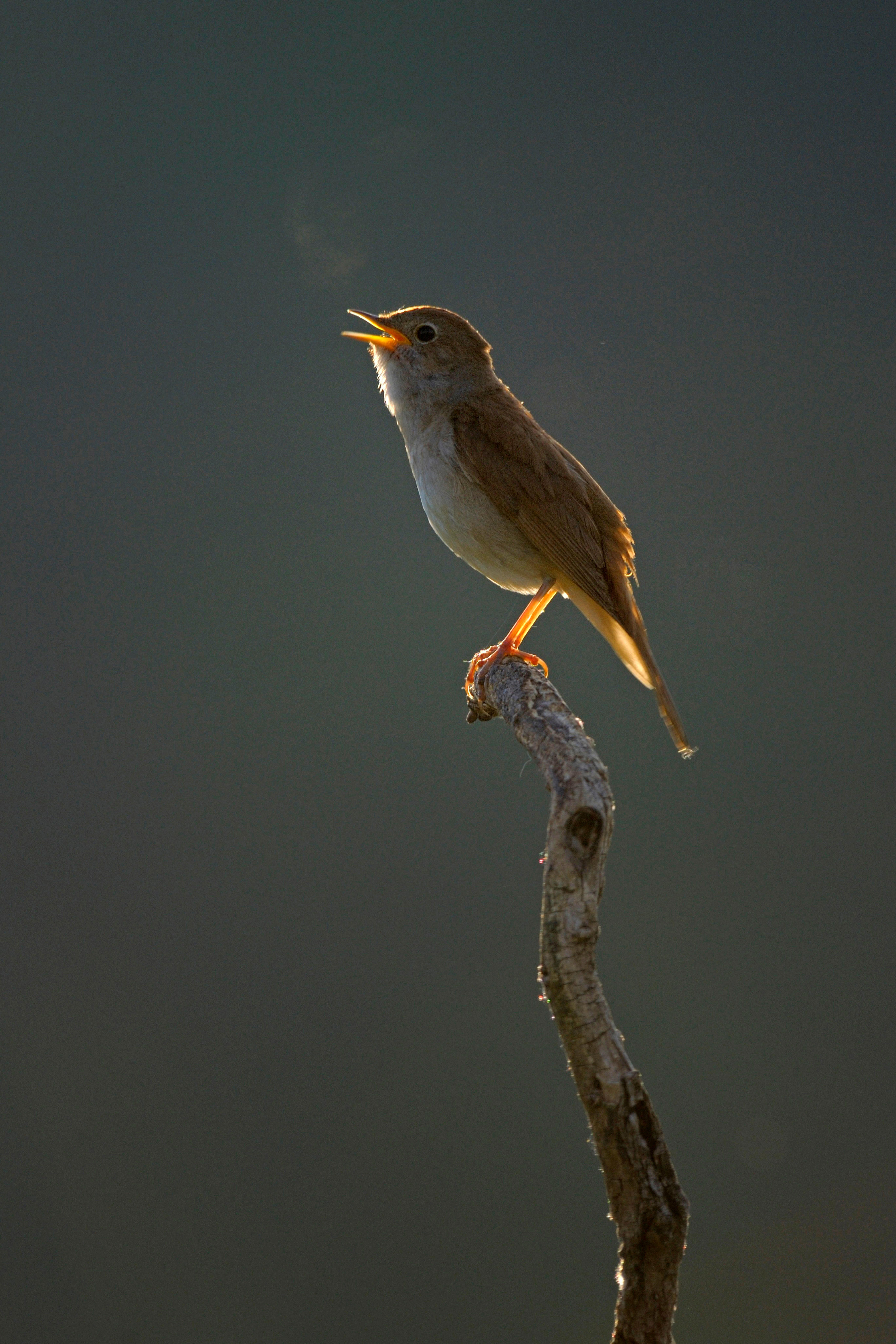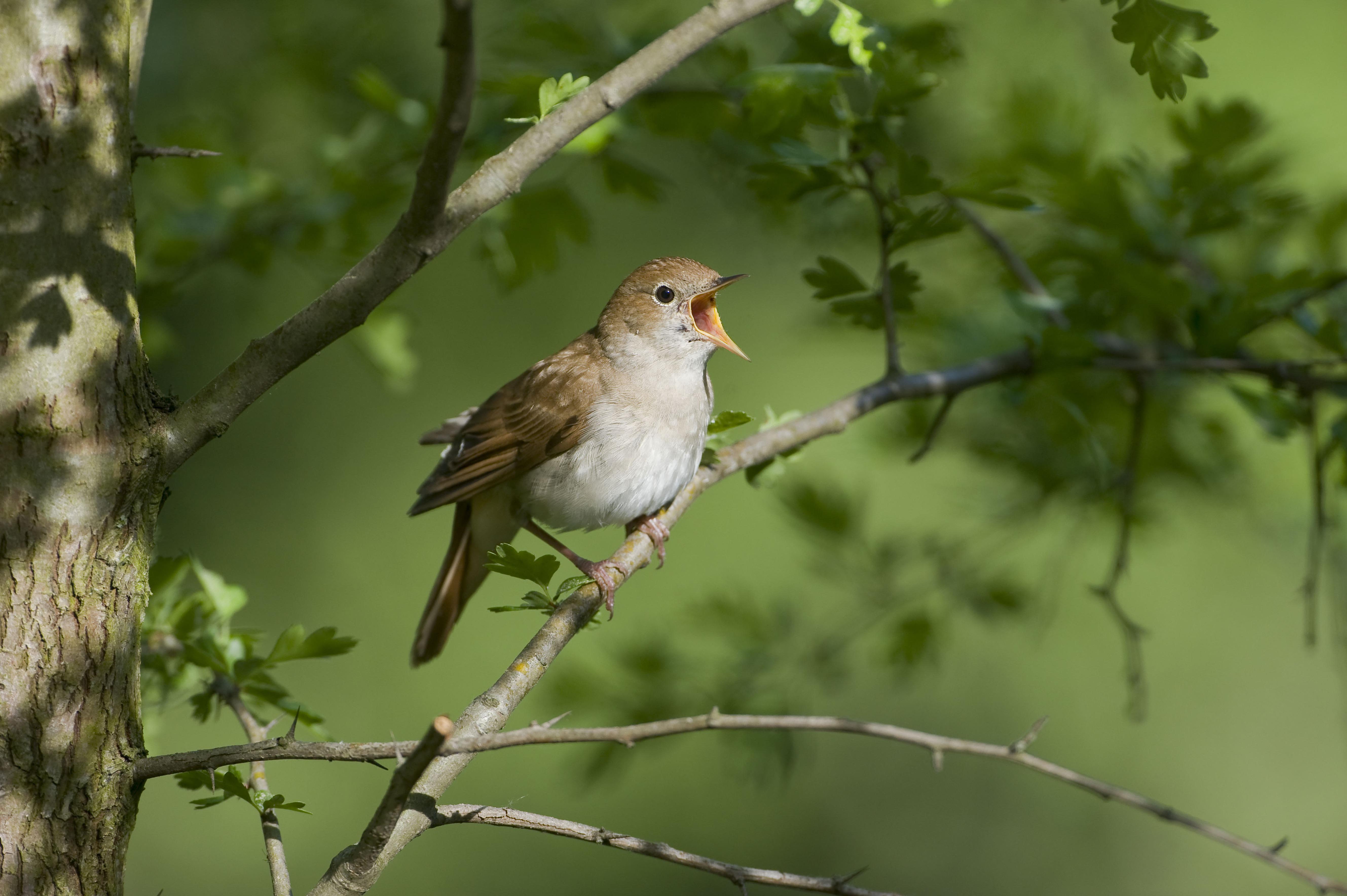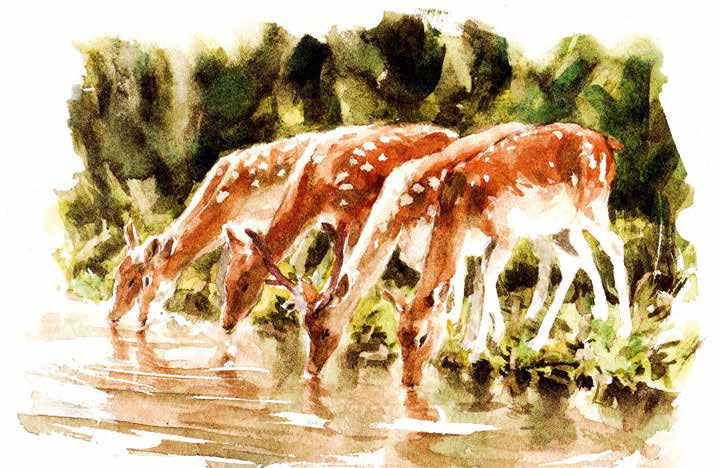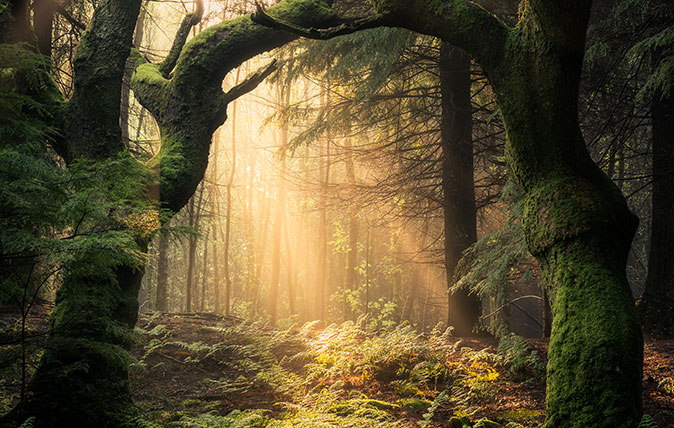In praise of nightingales: 'I’ve listened to Gregorian chants in Gothic cathedrals — but the greatest musical performance I ever heard was outside my bedroom one night'
It’s 200 years since Keats penned ‘Ode to a Nightningale’, but this otherwise drab bird’s rich, sorrowful song is worth listening out for says John Lewis-Stempel.


Exquisite houses, the beauty of Nature, and how to get the most from your life, straight to your inbox.
You are now subscribed
Your newsletter sign-up was successful
Do nightingales still sing in Berkeley Square? Do nightingales sing anywhere much, anymore?
It’s the saddest song I have ever heard, the song of the nightingale bird. Sadder now that the nightingale’s nocturnes, once familiar, seem like requiems for its own extinction and its habitat, too, which is that of unofficial, thickety countryside or traditionally coppiced woodland. And pure night.
The Ancients early noted the musical melancholia of this nondescript avian, this beige bird. Homer in The Odyssey scribed, on some stone tablet, of the ‘wailing’ of the nightingale in the groves, but Ovid overdid it, making the nightingale’s song a tortured tale of rape and revenge. In Metamorphoses, Philomela is raped by Tereus and, at the moment of her revenge, both protagonists are turned by the gods into birds: Philomela into a nightingale.
For a millennium and more, from the Romans to the Romantics, the nightingale was exclusively Philomela of morbid mood. Some, as the Bard of Avon did, gave Philomela’s torment a prurient quiver, suggesting she re-enacted her rape by leaning against a thorn — a prick by any other name. Thus, in The Rape of Lucrece, Shakespeare has: ‘Come, Philomel[a]; that sing’st of ravishment… and whiles against a thorn thou bear’st thy part, to keep thy sharp woes waking.’
'Keats got this right: you have "full-throated ease" when singing'
The poetic cult of Philomela reached its pitch, of course, in Ode to a Nightingale by John Keats, the Romantics’ Romantic, published 200 years ago this year. Inspired by a nightingale singing at his Hampstead home (not that far, as the nightingale flies, from Berkeley Square), he found in Philomela’s grief the exact consuming story of his own unhappiness: he had been diagnosed with tuberculosis.
Sometimes, at night, I, too, find dolour in your tones, Nightingale, such as when I am alone in the house (my version of your bowl-like nest of herbage), my wife away, fledglings flown. But night is night, darkness, the time of the Death Watch, the riding of witches, the incoming tide of blackest memory.
Even the scientists, with their dry-as-dust classification of you, Nightingale, into the oscine suborder of the passerine order, accepted the sorrow arising from your syrinx as being defining; your scientific tag is Luscinia megarhynchos, from luctus, meaning lamentation. Did you know?
Exquisite houses, the beauty of Nature, and how to get the most from your life, straight to your inbox.
Poor Nightingale, there is so much more to you than the purveyor of sad songs, the prop of mopey poets and the patron bird-saint of the sleepless. Instead of the all-encompassing glooming, might we not consider instead the beauty in your voice, an aesthetic ideal to which our human music can only aspire? Because Keats got this right: you have ‘full-throated ease’ when singing.
I’ve been to national opera, I possess the Deutsche Grammophon CD of the Vienna Philharmonic conducted by Böhm performing Mozart’s Piano Concerto No 27, I’ve listened to Gregorian chants in Gothic cathedrals — but the greatest musical performance I ever heard was outside my bedroom one night this spring.
It was mild and it was dry (how nightingales like it), my family was home (how I like it), the windows were open and there streamed in nothing but starlight and the singing of five nightingales from the scrubby walnut orchard.
'Your preference is to be in a loose, spread-out jazz outfit, riffing off your fellows'
They sang the old favourite hymns, passed down the years from nightingale to nightingale, and I, in my turn, remembered Izaak Walton’s note-to-self that the man who hears at midnight the singing of the nightingale ‘might well be lifted above earth, and say, Lord, what Musick hast thou provided for the Saints in Heaven, when thou affordest bad men such musick on earth?’.
It was joyous, that divine performance at a stone house in a quiet corner of rambly, brambly countryside, and if I had to describe what you sounded like I would write: ‘Like spring water rising from the rocks of a South Down at sheepy twilight.’
The Victorians would never have caged you for entertainment, Nightingale, if minor key was all you had.
Quite apart from your defiant gurgling happiness, your performance that night would have perplexed poor Keats even more on discovering your gender: contrary to the tradition of Philomela, only unpaired male nightingales sing regularly at night. Neither do you like to be, contra the cult of Philomela once again, a soloist. Your preference is to be in a loose, spread-out jazz outfit, riffing off your fellows.
Oh, much mythed bird. Nightingale, you sing by day, as well as by night. Only in poesy are you matitutinally mute. Yes, you are secretive and shy, except if singing, when no real caution at all is required to get up close to you. My wife and I walk a back lane with the dogs, Bluebell, Rupert and Snoopy; you perch on a hazel arch singing away and bat not a lid over your delicate eyes as we pass under. (Those lovely brown eyes, I suppose, are the one corporeal clue, with the glorious chestnut of the tail plumes, of the exotic music that lies within your modest being.)

Rarely, Nightingale, do you sing at any great height, another reason why you appeal to us humans so. You are within reach. Almost. You’re not a sky-god like the swift or a skulky, marginal moorland creature like the snipe.
From your straggling struggle here in April from Africa, you’ll sing for a month or so, but I’ve heard you, yearning for a mate, as late as the first week of July. (I suppose, with your numbers declined by 90% in five decades — my lifetime — a mate is ever harder to find.)
Yes, I heard your desperate yearning. You see, no one is wrong to find sadness in the nightingale’s song — or, indeed, joy, yearning, or other emotions — because who today can say for certain that birds are without feelings, plural and various? Almost every day, scientists discover that some animal has ‘emotional intelligence’. Today, it’s cows and yesterday, it was sheep. Tomorrow, it will be birds. They will have their day.
If any bird can express emotions, it is you Nightingale, with your breviary of 260 songs, all using trills and tweets, whistles and ‘jug-jugs’, rattles and rasps, chirps and flutings, both ascending and descending in pitch. John Clare, the naturalist’s Romantic poet, wished to add to your recorded repertoire, rightly:
‘Wew-wew wew-wew chur-chur chur-chur
Woo-it woo-it’—could this be her
‘Tee-rew tee-rew tee-rew tee-rew
‘Chew-rit chew-rit’—& ever new
Perhaps Nightingale, you pluck our soul-strings because, inside that small brown body, you have, in some miniature and crude form, similar chords of feeling. Or, perhaps, when we were primitive and lived in trees, when the world was new, we sang like you — we share 50 genes or more to do with sound-making. Perhaps, when you sing in our quiet corners, we hear the echo of our singing selves two million years ago, before we fashioned speech, made words. Fancy! We may have once sung like the birds. Like you even, Nightingale.

Credit: Philip Bannister / Country Life
The extraordinary writing which made John Lewis-Stempel Columnist of the Year
Read three of the beautiful, evocative articles which made Country Life's John Lewis-Stempel the Columnist of the Year.

Credit: Guardians of the Forest, Llanrhychwyn, Snowdonia, Wales ©Simon Baxter / Landscape Photographer of the Year
A walk in the woods: Tranquility, beauty, and a 500,000-year-old connection to our ancestors
John Lewis-Stempel appreciates the calm tranquillity of woodland as he wanders through his own treasured Cockshutt Wood.

A tour of Cognac: 'There wasn't an electronic gimmick in sight – the product is still made by hand and tongue, same as it ever was'
John Lewis-Stempel visits the village of Cognac to learn how the eponymous digestif and the local wine, pineau, is made.
